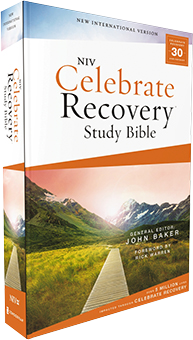
An 8-Point Inventory for Spiritual Growth
“Search me, God, and know my heart; test me and know my anxious thoughts” – Psalm 139:23
Most of us don’t like to look within ourselves for the same reason we don’t like to open a letter that we know contains bad news. But taking a spiritual inventory every so often provides a framework for recognizing both the good and the bad qualities that make us who we are, changes that bring us closer to God, and areas to celebrate! Consider these areas of life:
1. Our Relationships with Others
In Matthew 6:12 – 14 Jesus instructs us to pray, “Forgive us our debts, as we also have forgiven our debtors. And lead us not into temptation, but deliver us from the evil one. For if you forgive other people when they sin against you, your heavenly Father will also forgive you.” Consider any resentments, grudges, or jealousies you may have. Take the time to evaluate whether you’ve been blaming others for your own ill-advised choices, and be sure to note those people you’ve hurt, been critical of or gossiped about.
Reflect: What do you see as the major reasons some of your relationships have been lost or are less than they could be?
2. Our Priorities in Life
We naturally do what’s important to us. Others identify our priorities by our actions, not by our words. Matthew 6:33 tells us what will happen if we make God our number one focus: “Seek first his kingdom and his righteousness, and all these things will be given to you as well.” Seek to identify those areas of your life in which you’re still not putting God first. Notice whether or not your priorities have been self-centered or self-serving. Examine the possibility that misplaced priorities may have had a negative effect on those close to you.
Reflect: What are some of the positive priorities in your life? Which priorities do you need to change?
3. Our Attitudes
Ephesians 4:31 counsels us to “get rid of all bitterness, rage and anger, brawling and slander, along with every form of malice.” Look for areas of your life for which you’re ungrateful. Reflect upon whether you’ve been easily angered by or sarcastic toward someone else. Explore why you’re still fearful of certain people and situations.
Reflect: How do you go about maintaining an “attitude of gratitude”?
4. Our Integrity
In Colossians 3:9 – 10 we’re instructed, “Do not lie to each other, since you have taken off your old self with its practices and have put on the new self, which is being renewed in knowledge in the image of its Creator.” Look for areas in your life in which you’ve been dishonest; areas in which you may have exaggerated your own good qualities or achievements to make yourself look good. Examine whether or not you live one way in front of your Christian friends and another way at home or at work.
Reflect: How would you rate your integrity? Do others trust you to follow through on your promises?
5. Our Mind
Did you know that the most difficult thing to open is a closed mind? Romans 12:2 gives us clear direction regarding our minds: “Do not conform to the pattern of this world but be transformed by the renewing of your mind. Then you will be able to test and approve what God’s will is — his good, pleasing and perfect will.” We need to acknowledge and examine ways in which our coping skills — our denial — may have protected us from pain and hurt in the past. Our denial may have afforded us protection, but it did so by preventing us from living in and dealing with reality.
Reflect: In what ways do you try to fill your mind with the truth and with other positive thoughts?
6. Our Body
Satan works through our bodies, our flesh, but thank God that the believer’s body is the temple of the Holy Spirit. God freely gives us the grace of his Spirit. He values us so highly, in fact, that he chose to place his Spirit within each of us. We owe it to our Creator to have as much respect for ourselves as he has for us. First Corinthians 6:19 – 20 asks, “Do you not know that your bodies are temples of the Holy Spirit, who is in you, whom you have received from God? You are not your own; you were bought at a price. Therefore honor God with your bodies.”
Reflect: How have you mistreated your body in the past? How are you treating it today?
7. Our Family
Joshua, one of Israel’s Old Testament leaders, made a bold statement regarding his household: “If serving the Lord seems undesirable to you, then choose for yourselves this day whom you will serve . . . But as for me and my household, we will serve the Lord” (Joshua 24:15). God designed the family to be a safety net from life’s storms. As much as it depends on us, we need to provide a haven for our family.
Reflect: How would you rate your relationship with your family? How can you improve it?
8. Our Church
Hebrews 10:24–25 motivates us with these words: “Let us consider how we may spur one another on toward love and good deeds, not giving up meeting together, as some are in the habit of doing, but encouraging one another — and all the more as you see the Day approaching.” Analyze whether or not you’ve been faithful to your church in the past. Your church is like a bank: The more you put into it, the more interest you gain. Determine whether you’ve been supportive or critical of your church. If you don’t like something about it, get involved so you can help change it or at least understand it better. Replace your grumbling with service.
Reflect: Do you have a church home? Do you actively support it with your time, talents and treasures?
Spiritual Renewal as We Step into God’s Truth
These eight areas offer an easy checklist for spiritual inventory. As you consider changes in your life, remember two things. First, in Isaiah 1:18 God invites us: “Come now, let us settle the matter . . . Though your sins are like scarlet, they shall be as white as snow; though they are red as crimson, they shall be like wool.” Second, keep your inventory balanced by making sure to note the positives in your life and the ways that you’ve been able to step into God’s truth.
Drawn from content in the NIV Celebrate Recovery Study Bible.

NIV Celebrate Recovery Study Bible
The NIV Celebrate Recovery Study Bible contains the complete text of the NIV with hundreds of notes and study features that connect Scripture to eight recovery principles from the Celebrate Recovery program developed by John Baker and Rick Warren. Includes articles, recovery stories, biblical character studies and more.
Learn More






Enjoyed this lesson and need to do it more often.